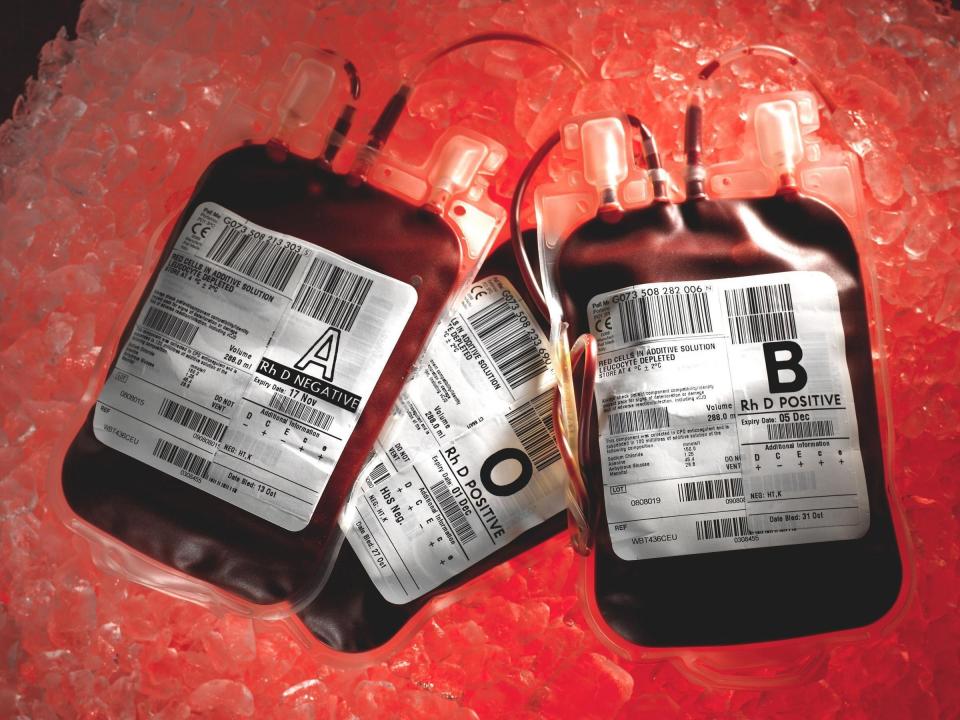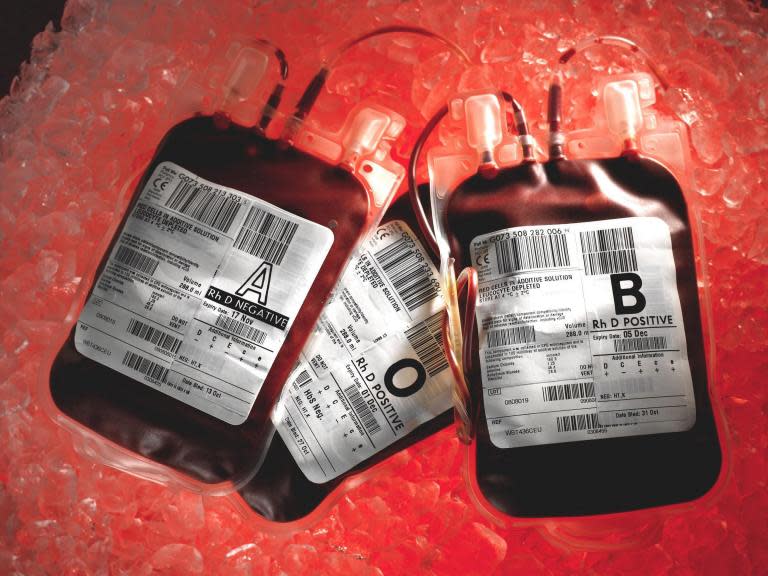Vow politicians and pharmaceutical companies 'will be held to account' as contaminated blood scandal inquiry opens
An inquiry into how thousands of patients came to be infected with HIV and Hepatitis C from contaminated blood in the 1970s and 1980s began on Monday with emotional testimonies from those at the heart of the scandal.
This is the first time a UK-wide public inquiry has been conducted into the failings, which have caused at least 2,400 deaths to date.
Those leading the inquiry pledged to investigate claims of a cover up thorough, and hold anyone found to be responsible to account "without fear of favour".
At the preliminary hearing on Monday victims set out in a video how their lives were changed when they were diagnosed.
One man said he was given a contaminated dose of the clotting agent Factor VIII as an eight-year-old child, after a swollen knee was misdiagnosed with haemophilia. He did not find out until he was 43 that he had been infected with Hepatitis C.
"When they told me what they had done to me, I stood at a motorway bridge to jump off it - basically, that has been my life ever since," he added.
"I lost everything, I lost my whole life the day I found out - everything ended."
One woman, whose identity was hiden, said she became infected with HIV through her husband who was a haemophiliac, and the news left them both stunned and devastated.
"This was the mid-1980s and the climate of fear, discrimination and stigma associated with HIV and Aids was horrendous," she said. "We coped the best we could. We were silenced, and we kept quiet."
Former High Court judge, Sir Brian Langstaff, chairman of the inquiry, told those gathered on Monday that there could be many more victims still undiagnosed.
"The numbers here today pay a silent testimony to the sheer scale of the tragedy," he said.
"It is a truly sobering thought that if some of the claims are well-founded - and it is for this inquiry to find out if they are - there may yet be many thousands more who do not feel well, but have not yet been told that the reason for this is that their life is threatened by Hepatitis C."
Previous inquiries have lacked powers to be able to force witnesses to come and give evidence, undermining their ability to establish whether the risks were known about but concealed from patients and previous investigations.
Along with the alleged destruction of government documents from the period, and missing medical records, this has led to campaigners belief in a cover-up of the true scale of the scandal.
The inquiry heads said their work would seek to address these concerns and would be the first to call government ministers, civil servants and NHS officials from the period to account for their actions.
Sir Brian added: "I am willing to seek documents that may not have been seen before. We have already requested a number of documents which we would not have got if this was not a statutory inquiry,.
"[The inquiry] is willing to hold people to account where this is appropriate and it will express its views at the end without fear or favour, affection or ill will."
Across two decades nearly 5,000 people with the clotting disorder haemophilia are known to have been infected after receiving contaminated blood products.
Research in the 1970s identified how to make the clotting agents that people with haemophilia and other conditions lack by pooling and purifying donated human blood plasma.
One major treatment, clotting agent Factor VIII, meant patients could avoid lengthy hospital blood transfusions to prevent minor injuries causing life-threatening bleeds, and was in high demand.
But the UK was slow to develop its own reserves and relied on importing stocks from the US, much of it pooled from paid donors including prisoners, sex workers, drug users and others at high risk of infection. Though Scotland did set up its own supply chain, the rest of the UK was still using imported stocks well into the 1980s when HIV infection was at its peak.
These viruses could be passed on to wives, sexual partners, and even children. Contaminated blood stocks were also used in transfusions in hospital, and as many as 30,000 may have been infected in all.
Heat treatment to remove any viral infection from blood and plasma stocks only became routine by the mid-1980s, but question marks remain about how much was known before this point.
On Tuesday and Wednesday those infected or affected by the scandal, and lawyers working on their behalf, will give opening statements.
Des Collins, of Collins Solicitors, which represents more than 800 victims, their families and eight campaign groups, said the inquiry is critically important.
“For those affected, their families and the campaign groups this is a day few thought that they would ever see – and it is a testament to those who have campaigned so hard to make it a reality,” he said.
Collins Solicitors said fewer than 250 of the haemophiliacs who were co-infected with both Hepatitis C and HIV remain alive, with most dying before 1997.
The firm said many of those who have survived face a lifetime of medication – having to cope with serious illness and discrimination.
According to the terms of reference, which were published in July, the long-awaited inquiry will consider “whether there have been attempts to conceal details of what happened” through the destruction of documents or withholding of information.
It will also consider whether those attempts were deliberate and if “there has been a lack of openness or candour” in the response of the Government, NHS bodies and other officials to those affected.
Additional reporting by PA

 Yahoo News
Yahoo News 

